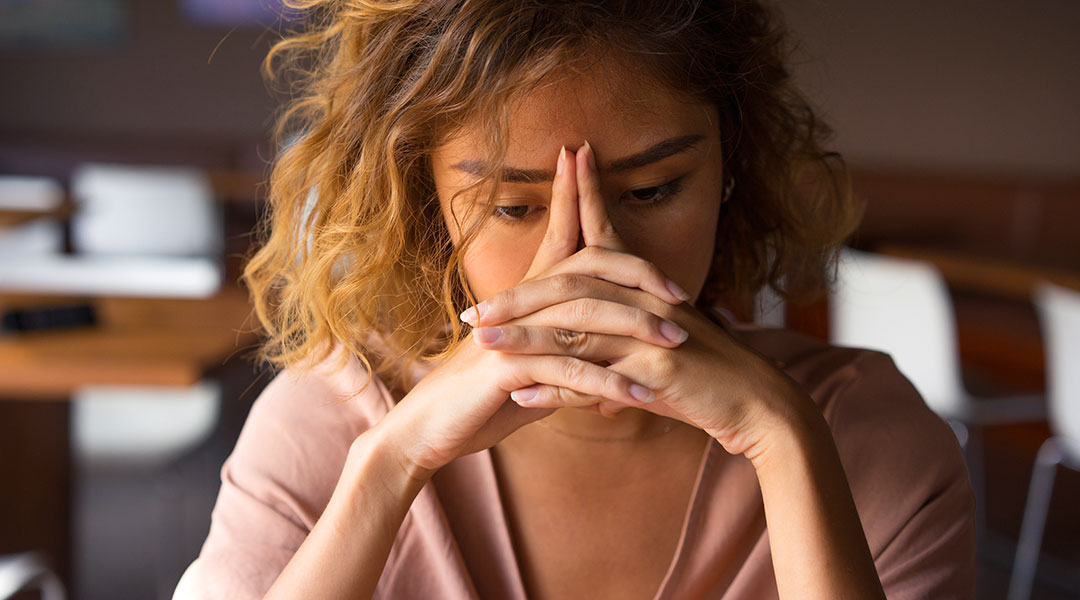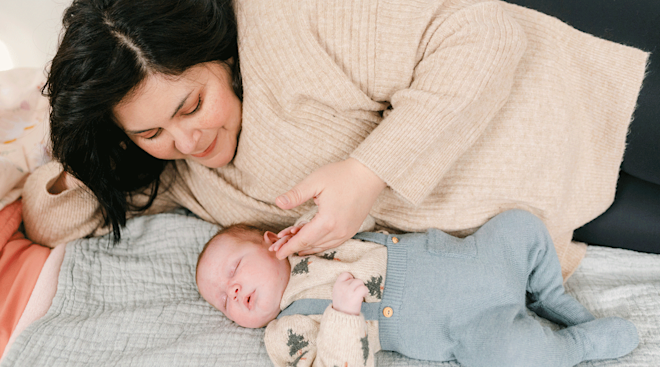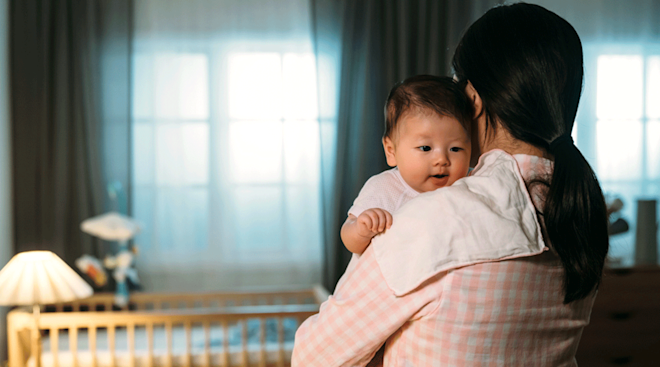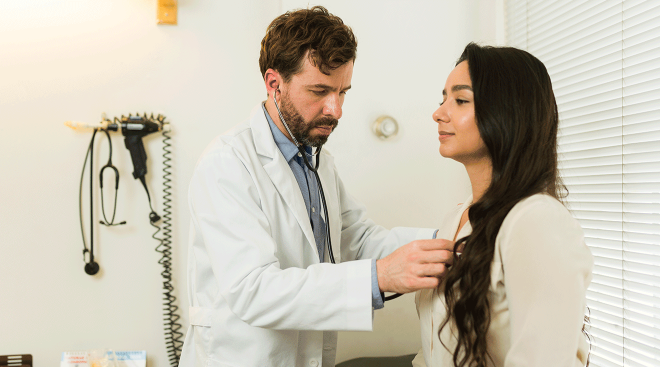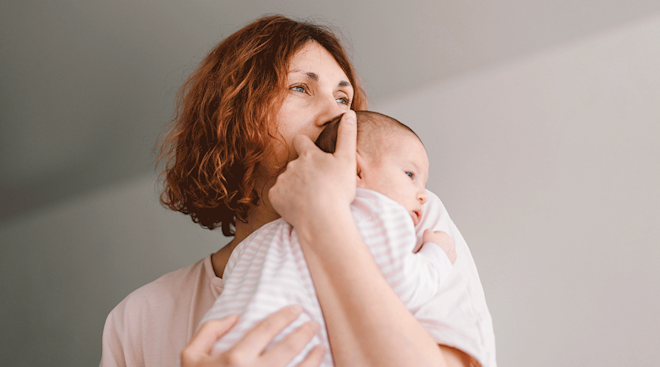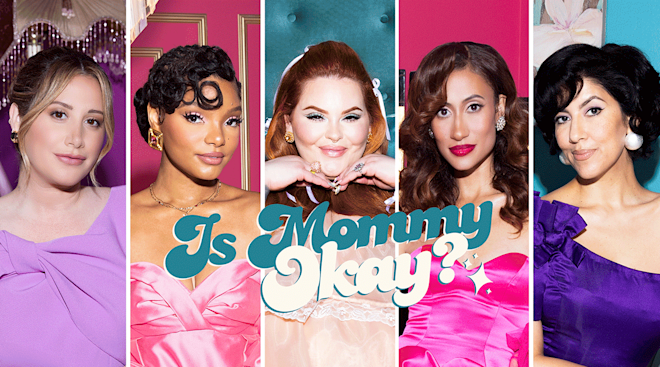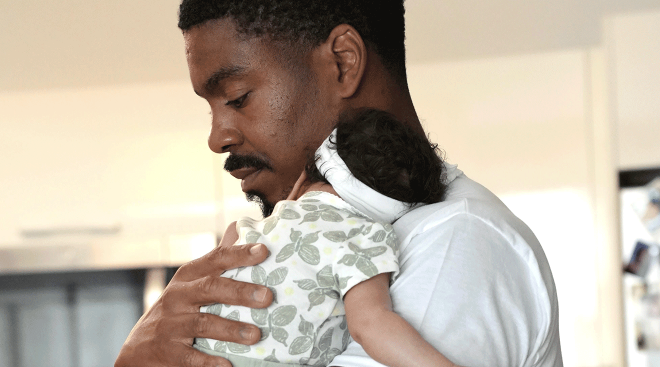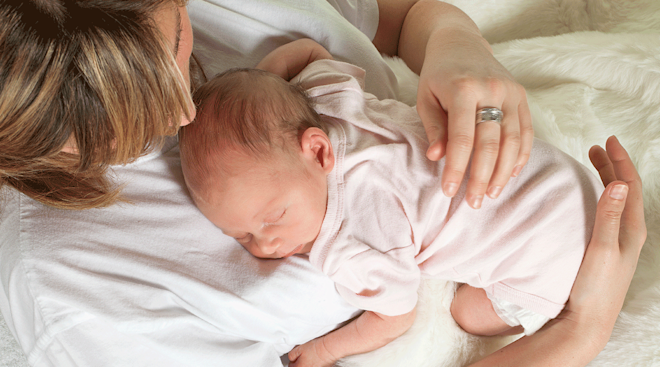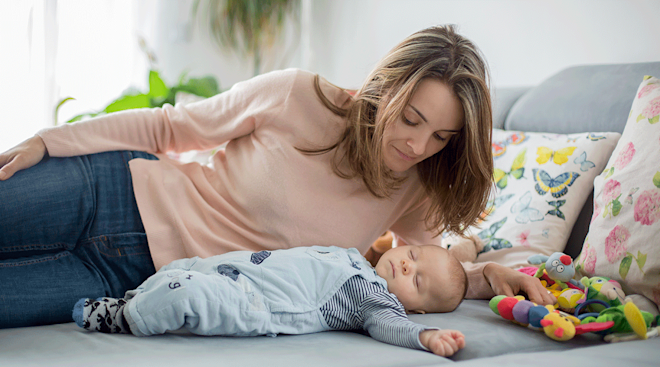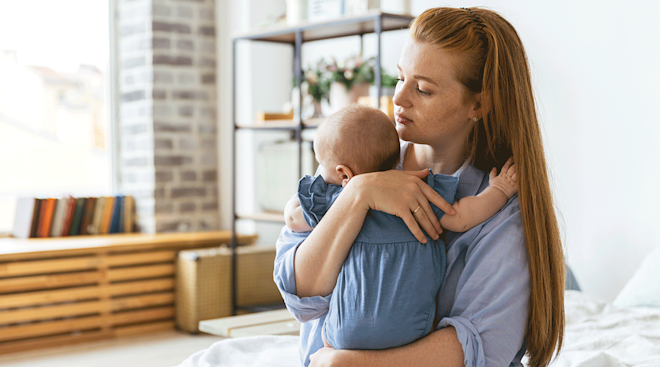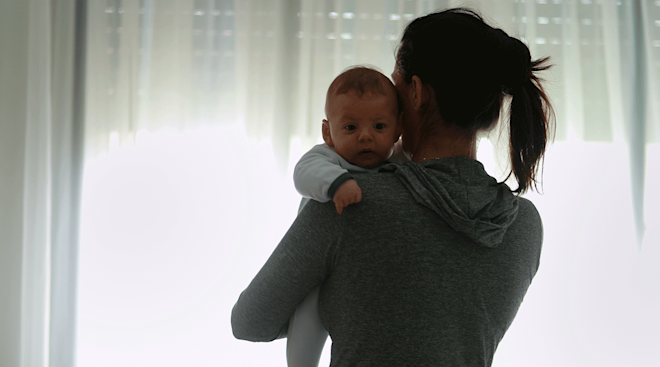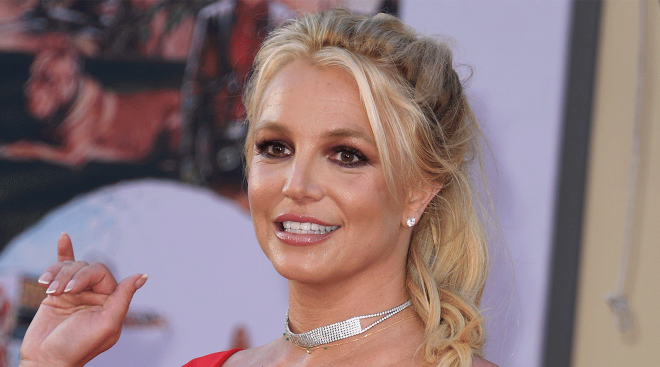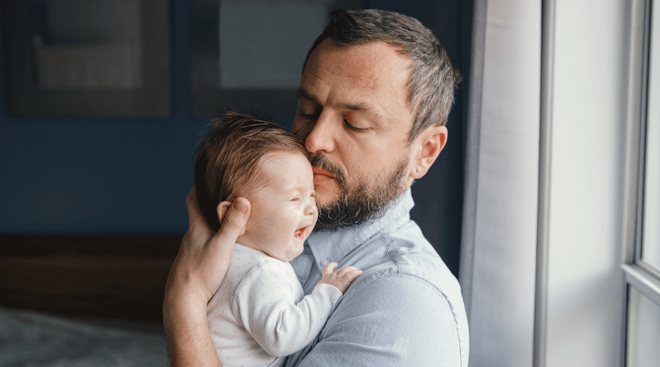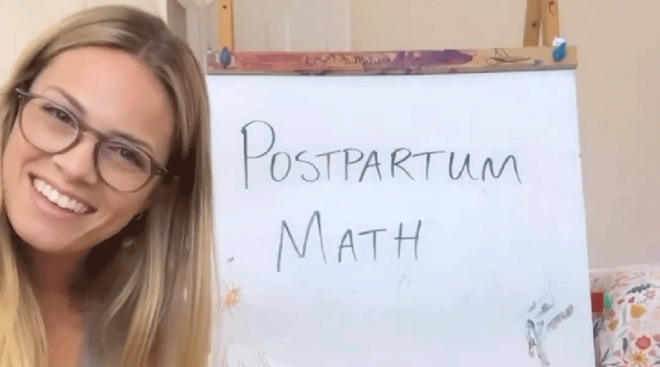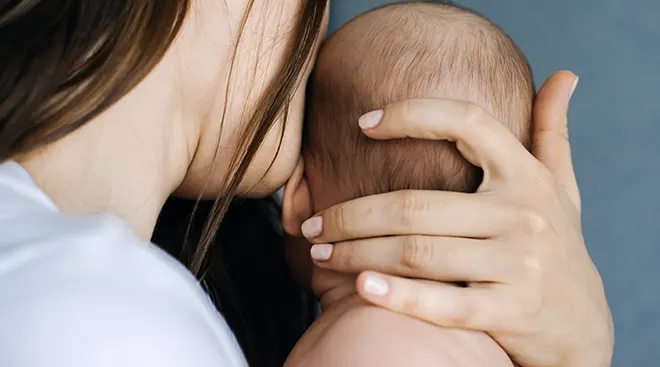General Anesthesia May Increase PPD Risk After C-Sections, Study Finds
Postpartum depression is a topic more women are opening up about. Even celebrities like Chrissy Teigen and Serena Williams have spoken up about their own experiences. Postpartum depression is nothing to be ashamed of, and it affects more women than you might think. Now researchers are looking at possible causes of it and wondering whether, when it comes to c-section deliveries, general anesthesia might be playing a role.
According to a new study from researchers at Columbia University, women who receive general anesthesia during a c-section may be at a higher risk of developing postpartum depression (PPD) so severe it requires hospitalization, inflicting self-harm and having suicidal thoughts. The study, which was published in the journal Anesthesia and Analgesia, is among the first first to look at the effect types of anesthesia can have on the risk for PPD after a c-section.
The study looked at over 428,204 records of women who gave birth via c-section in New York state hospitals between 2006 and 2013. It found that 8 percent of the women received general anesthesia. Of those women, approximately 3 percent (1,158 women) were hospitalized due to severe PPD. Of the 3 percent, 60 percent were diagnosed with PPD when they readmitted, about 164 days after being discharged. The researchers also found that general anesthesia, compared to local anesthesia, was associated with a 54 percent increased risk of PPD and a 91 percent increased risk of suicidal thoughts or self-harm. The researchers note, however, that more research is needed, as these numbers are not correlated to a cause-and-effect and are, rather, an observation.
“General anesthesia for cesarean delivery may increase the risk of postpartum depression because it delays the initiation of mother to infant skin-to-skin interaction and breastfeeding, and often results in more acute and persistent postpartum pain,” Dr. Jean Guglielminotti, the study’s first author and assistant professor of anesthesiology at Columbia’s Mailman School of Public Health, stated in a news release from the university. "These situations are often coupled with a new mother’s dissatisfaction with anesthesia in general, and can lead to negative mental health outcomes.”
He adds that general anesthesia is often used to quicken delivery in emergency situations, but that there is no evidence that it benefits baby. Rather, he notes, there is increasing evidence that it can negatively affect moms.
“Our findings underscore the need to avoid using general anesthesia for cesarean delivery whenever possible, and to provide mental health screening, counseling, and other follow-up services to obstetric patients exposed to general anesthesia,” co-author of the study Guohua Li, MD, DrPH and finster professor of epidemiology and anesthesiology, also stated in the release.
According to the release, PPD has increased seven-fold in the last 15 years in the United States. Today, it affects up to 1 in 7 women, with approximately 550,000 annual new cases.
Please note: The Bump and the materials and information it contains are not intended to, and do not constitute, medical or other health advice or diagnosis and should not be used as such. You should always consult with a qualified physician or health professional about your specific circumstances.
Navigate forward to interact with the calendar and select a date. Press the question mark key to get the keyboard shortcuts for changing dates.

































